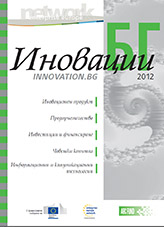
We kindly inform you that, as long as the subject affiliation of our 300.000+ articles is in progress, you might get unsufficient or no results on your third level or second level search. In this case, please broaden your search criteria.

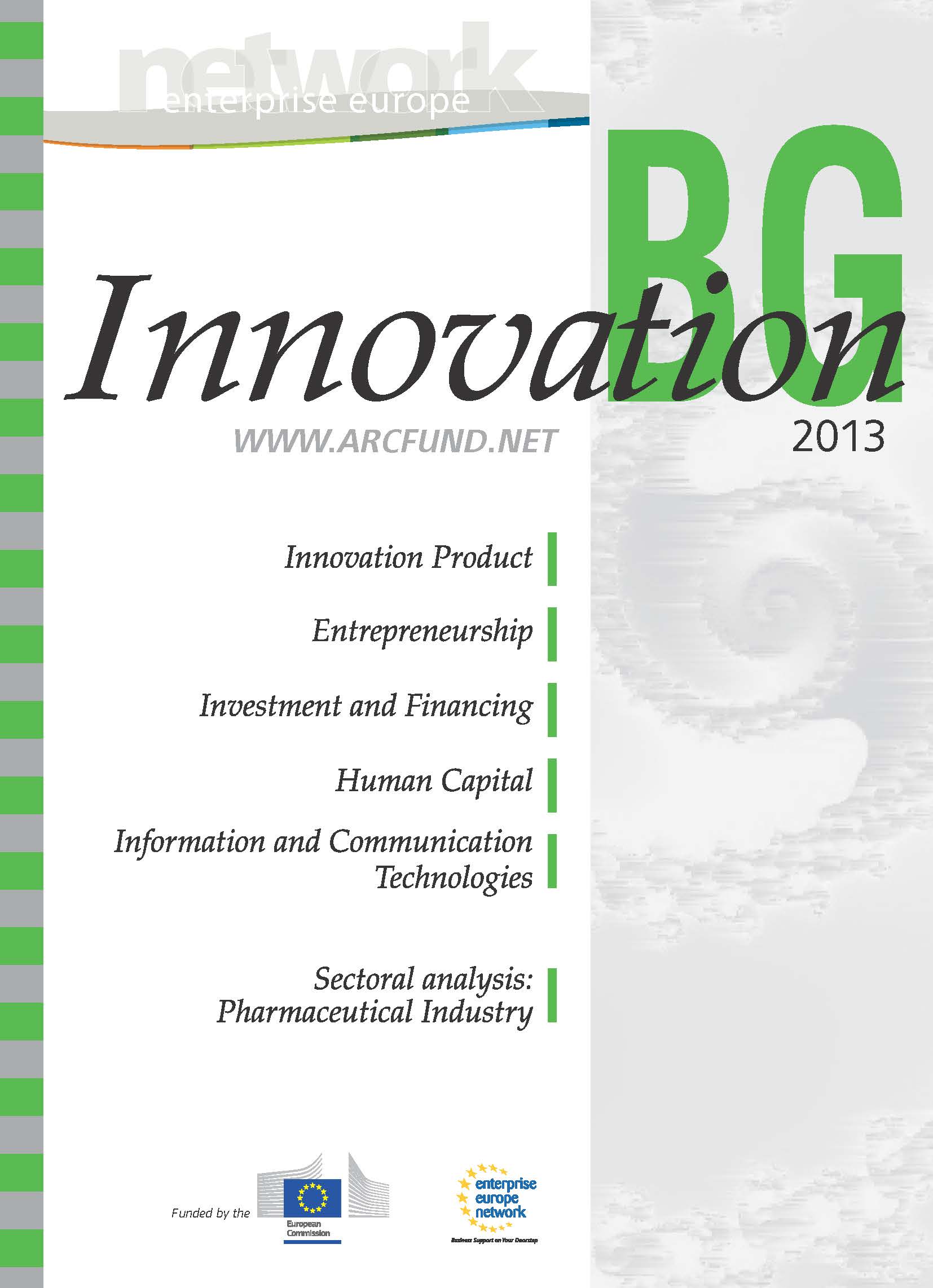
For more than a decade the annual Innovation.bg report has provided a reliable assessment of the innovation potential of the Bulgarian economy and the state and development capacity of the Bulgarian innovation system. It has put forward recommendations for improved public policy on innovation in Bulgaria and the EU by drawing on the latest international theoretical and empirical research while taking into account the specific economic, political, cultural, and institutional framework in which the country's innovation system is operating. During the last nine years Innovation.bg has made specific recommendations for the improvement of innovation policy and practice, which have been supported by business and the science sector. Innovation.bg 2013 focuses on the innovation potential of the pharmaceutical sector.
More...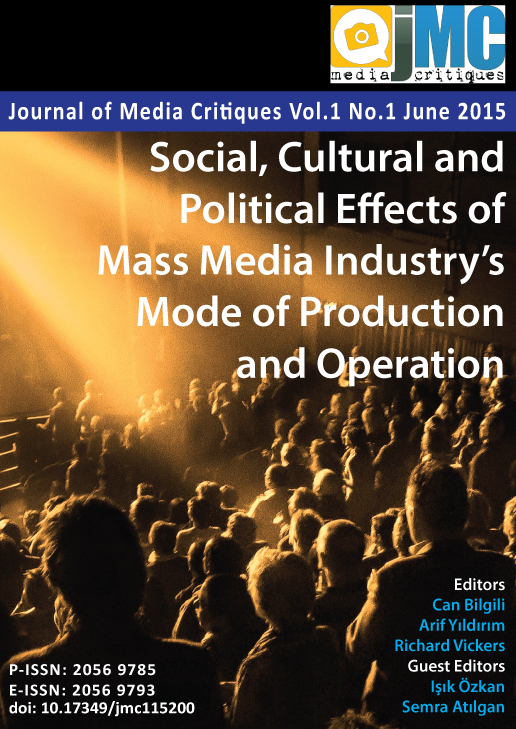
Young people today are growing up in a digitalized environment. What challenges do they face in navigating this content-rich, symbolic environment? In this article, the researcher reviews university students' perceptions of media literacy by examining the use of social networking platforms (SN) in academic settings. The researcher distributed 1200 surveys evenly split between Chinese and UAE students and 998 were returned and analyzed. The findings reveal that while many students believe that media literacy should become a priority in modern curricula, this urgency is not felt by the majority of students. The researcher reviews current views and methodologies in the literature related to media literacy and its status in current pedagogy. The study draws from gravitation theory to place the use of SN tools within a broader background of communication. The Uses and Gratification Theory is also invoked to explain how SN was made attractive to campus activists and protesters in the two countries.
More...
As consumers become decreasingly responsive towards traditional forms of advertising, advertisers are turning towards more innovative methods. Virtual worlds provide an extraordinary potential for new and enhanced modes of advertising. This study examines the opportunities of the virtual world, Second Life, as a new platform for businesses’ advertisement and promotional activities. First, we briefly introduce the concept of virtual worlds and virtual advertising. Then, we go on to explain the development of advertising, with special emphasis on its evolution alongside technological developments. Furthermore, we discuss how virtual worlds developed and how the features of these worlds lent themselves to advertising. Second Life, the most popular virtual world application, is given a special emphasis, and we shall explore opportunities and practices for virtual advertising in this virtual world application.
More...
Interface of a website is a designed and composed space and it is like a paper to be filled with visual and inscriptive data. Advertisements on newspapers can reach to readers both by physical and virtual space. As district from traditional techniques, online advertisements realize presentation functions by the fee for taking place on web pages without any paper or print cost. However, with today's revised advertising policy laws, due to enhance of advertising spaces, the main information and images are almost stuck between the advertisements on webpage of e-newspapers. On the web interfaces of e-newspapers, almost half of the page is covered with advertisements without attention of design principles. In this context, with the purpose of arranging web pages more appropriately to the design principles and transferring actual information to the readers with more simple design approach the selected newspapers’ web interfaces will be discussed with semiotics.
More...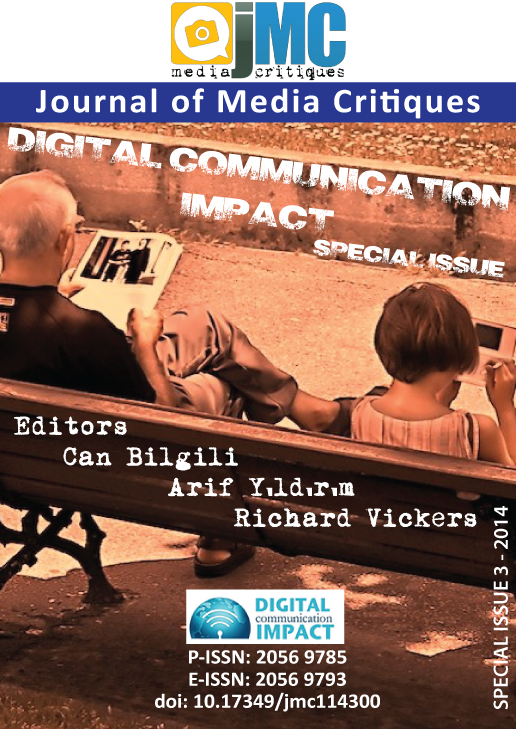
This study tries to explain the role of digital avatars for communication in two distinct ways. In the first part it debates what kinds of meanings avatars have for their users. To answer this question based on semiotic theories of Saussure and Lacan, a new approach will be proposed. Saussure’s theory of signs and Lacan’s theory of chain of signifiers as an entry for self, will be merged to form a new viewpoint. In the second part, the role of avatars in the digital communication for the receivers will be approached by Berger’s uncertainty reduction theory.
More...
Reputation of states is an important issue in the international arena. Especially today, since individuals and societies also have a say regarding foreign politics, reputation of a country before the international community has become an important variable. In consideration of the Turkish foreign politics under the Justice and Development Party (AKP), it is not hard to see that actually this period has been the period when the most important steps regarding soft power and public diplomacy were taken. However, despite all these efforts, the government’s designation of rather authoritarian methods can be interpreted as concessions regarding foreign policy and the country’s reputation in the international arena for the sake of domestic politics. Primarily the pressure of the AKP government on the traditional media channels and then the pressures on the social media and the internet, which comprise the subject of this study and have recently been intensely witnessed, are among the touchstones of such authoritarianization. In this study, reflections of the Twitter and YouTube ban of the AKP government in late March 2014 on the French press have been analyzed. As is known, access to Twitter was banned on March 21, 2014 and following that, to YouTube on March 27, 2014, then access to both was restored in the following days as a result of the appeals to the courts. However, the said bans were perceived as direct intervention in personal rights and freedoms both domestically and internationally during this period, and the AKP government in particular has left deep marks with respect to Turkey’s reputation.
More...
Policy, based on control mechanism the regular living of community, reached different dimensions in today’s communication conditions. It is not possible to sever the policy from communication. This situation took yet more different turn by diversifying of means of communication. The person or institutions, are in touch with political communication, benefit from various communication methods for be able to manage the perceptions of the mass be able to do behavioral change upon own request and be able to affect the target groups. “Election Campaigns” are one of the first constituents come to mind when you say political communication. It is also important “what you tell” a “how you tell” to target group in communication. Management methods of the political communication, underwent change on several counts along with the introduction of internet technology to our lives. Policy, became digital by the system named as “Social Media”, makes possible interactive, open bilateral communication process. Being the social media faster and cheaper than traditional means of communication and using the social media densely by electorate, gain the upper hand to political parties in the executive process the election campaigns.
More...
Following the developments in technology, "monitoring" has steadily increased in educational institutions, roads, subway, or in short everywhere in cities where people live. And, the employees have also started to be monitored in workplaces by their employees during the working hours. The case of constantly being monitored and tracked has led to the established opinion in the employees that almost there is no privacy at work. Employers, however, consider the monitoring as a necessity since it increases efficiency, improves quality and ensures security. In the workplaces, e-mails and computers are monitored, offices are under surveillance by cameras, phones are tapped, certain sites and social media sites are blocked on the Internet, personal data are recorded, and electronic cards are used for employee entries and exits. Does these practices and controls have pressure on employees and harm privacy? Advances in communication technologies and the issue of employee privacy in businesses were investigated in this study by examining the regulations in international and municipal law (Constitution, the Turkish Penal Code, the Code of Criminal Procedure, Labor Law).
More...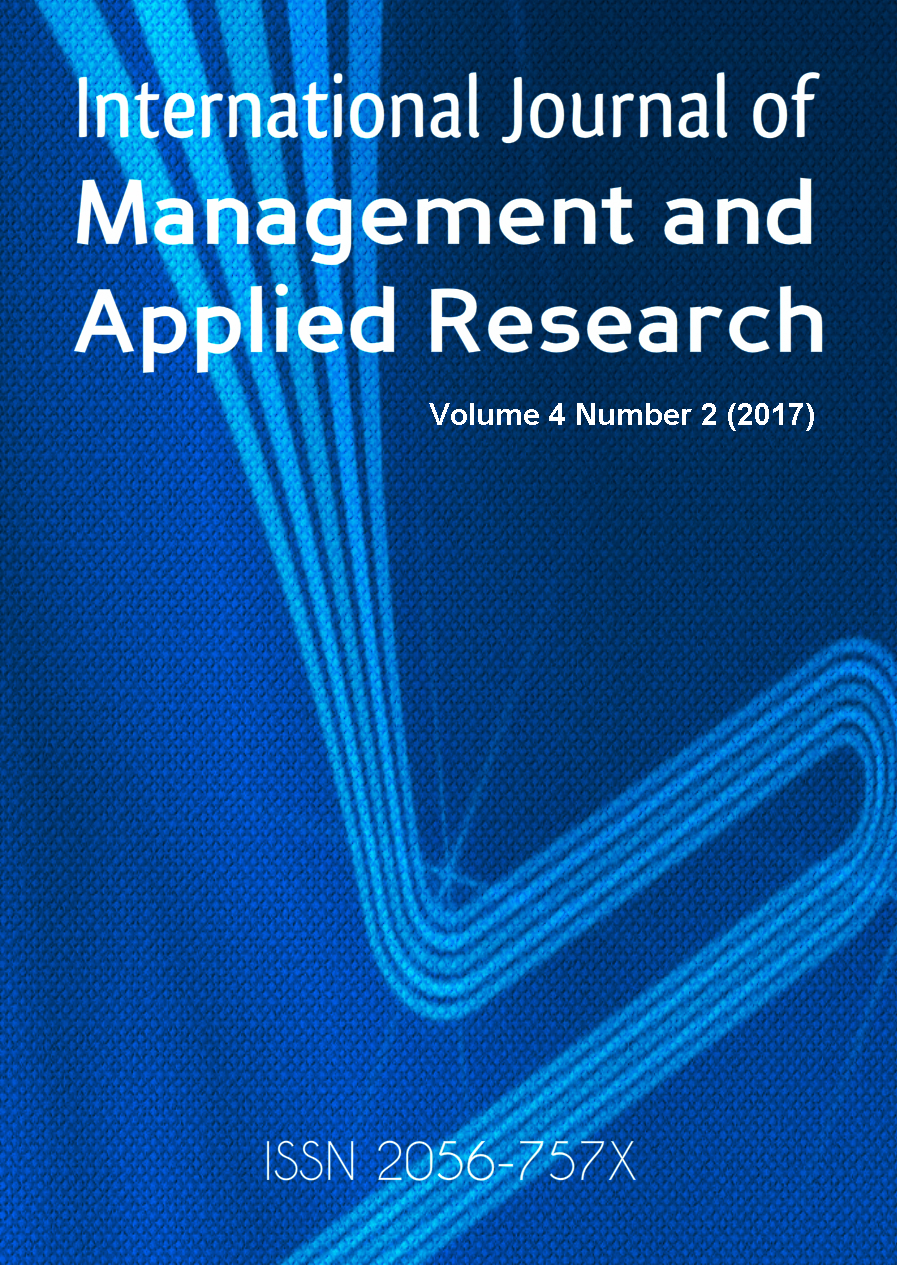
High Performance Organization (HPO) characteristics indicate why an organization is able to achieve significantly better results than other organizations and these characteristics can facilitate associations to optimize employees’ work outcomes. The independent professional (IP) is an increasingly occurring phenomenon in the labor market that fulfills an organizations’ need for flexibility in knowledge productivity. This study focuses on the contribution of HPO characteristics to the knowledge productivity of IP's. It was conducted among managers and HRM professionals in various Dutch knowledge-intensive organizations that frequently enlist the services of IPs. This study found a number of HPO attributes that appeared to contribute to the IPs' knowledge productivity, namely the quality of management, an open and action-focused organizational culture, and continual improvement and innovation. We will use these results to look ahead and consider the future consequences for professional practice. Managers and HRM professionals should strive to contribute to the incorporation of these characteristics within the organization in order to safeguard and enhance knowledge productivity of independent professionals.
More...
This paper aims to enlighten a new approach to study the Knowledge Transfer (KT) through Systems Thinking (ST) in relation with the implementation of Knowledge Management System (KMS) at the practice of the healthcare. Thus, integration between the KT and ST aims to open a door for a new literature about Knowledge Management theory in the healthcare context. This paper used many key philosophical concepts drawn from the ST theory and KT to investigate deeper understanding of the issues around KMS implementation practically in the context of the hospitals. In favour of these objectives, this paper conducted a case study on the implementation of the Electronic Patient Record (EPR) at BP Trust in the UK. Base on the business case of the project, EPR is perceived as a representative of KMS initiative project in the Trust.
More...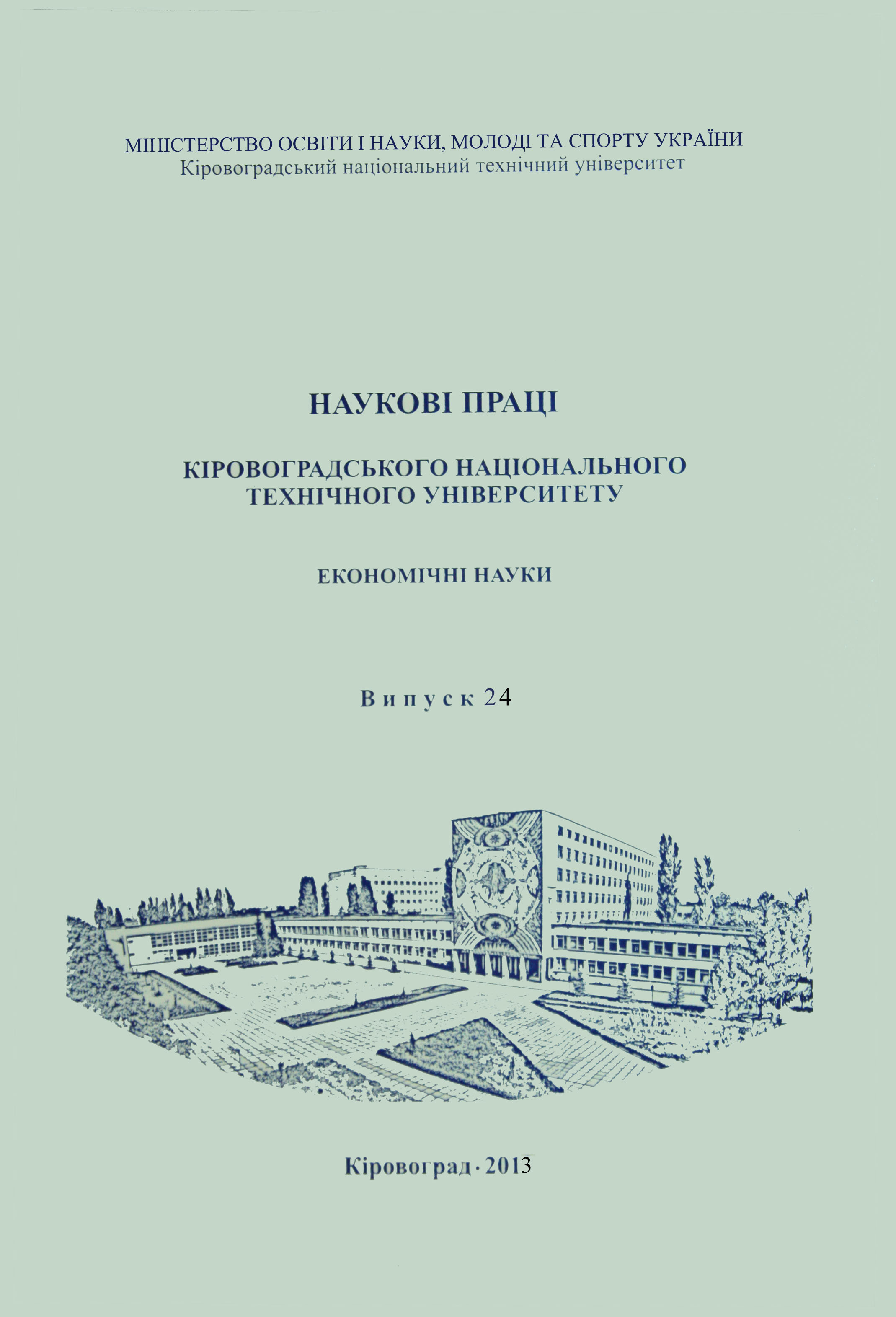
The aim of this work is to study the system based on the processing of international experience as a way of committing IPO privatization and possibilities of its use in the privatization process in Ukraine.The article summarizes the world experience with an IPO in the privatization process. The author defines the conditions, compliance with which will ensure the effectiveness of privatization of enterprises in Ukraine with the IPO.The results can be used in the development of a comprehensive model of privatization of national enterprises issuers.
More...
Defined the real situation and the analysis of information and communication technologies in the food industry Chernihiv region identified negative factors that create barriers to the implementation and effective use of ICT.In most regions of the country the largest share of sales of industrial products is concentrated in the processing industry, mostly manufacturing of food, beverages and tobacco products. Successful business activity food complex as a leading component of regional economic systems provides the implementation of related measures of organizational, technical, economic, legal, informational and administrative nature. Among them, an important place is the use of information and communication technologies.Revealed positive trends in information provision in managing food enterprises in the region, as well as problems of further modernization due to the influence of modern trends in information technology, lack of adapted systems to enhance the integration process, the inadequacy of needs technical program and staff components of active management.
More...
This study concentrates on the discourse of e-Estonia, which is one of the most significant cornerstones of contemporary Estonian identity. The discourse of e-Estonia is articulated in Estonian official selfdescriptions, but it also has an important role in the self-understanding of various peripheral spheres. The aim of this article is to explain how the leakages concerning details of the top secret United States government mass surveillance program PRISM were contextualised in various dimensions of the Estonian public informational sphere and how it was related to techno-optimistic identity-discourse. The analysis indicates that the reflection of Snowden’s leaks is dominated by a discourse of fear which connects PRISM to instant threats but also to more abstract dangers. I outline three dominant subtypes of that discourse: (1) Phobophobia – the fear of fear, (2) the fear that surveillance technology may directly cause harm to a) global democracy and/or b) the human rights of individual citizens, and (3) the fear that PRISM is a sign of NWO conspiracy. PRISM’s reception demonstrates that in many aspects, the techno-utopian sphere of meaning is inverted and replaced with a dystopian one. Perceiving the significance of the social impacts of information and communication technologies remains relatively constant in both cases, but the positive charge of meaning is transformed into a negative one. For example, the important keywords of the e-success story (e.g., NATO Cooperative Cyber Defence Centre, e-healthcare system, paper-free bureaucracy) start to signify hidden danger. The constituent topics of the discourse of e-democracy (e.g., horizontal power-relations, freedom of expression and transparent governing) are, in many cases, replaced with the images that are familiar from the description of totalitarian regimes or NWO conspiracy theories.
More...
This paper focuses on the problem of Algerian economy mutation, from an economy based on oil as the sole source of income, to a knowledge economy based on competence of human resources and knowledge to achieve economic growth. This paper try to find answers to the following questions: what is the position of Algeria against the indicators of the Knowledge economy compared to the rest of the world? What mechanisms and policies that should be put in place to integrate Algeria in this new economy? Based on a comparative analysis we examine the readiness of the Algerian economy to Integrate Knowledge economy. The study adopts The World Bank methodology based on the four pillars– institutional regime, education, innovations and ICT. It summarizes both positive and negative sides, difficulties, and relies on the possible actions to resolve them regarding the attainment of the relevant national objectives. The study revealed that Algeria should pursue a long-term strategy for the development of knowledge, focusing on achieving a real rate of growth.
More...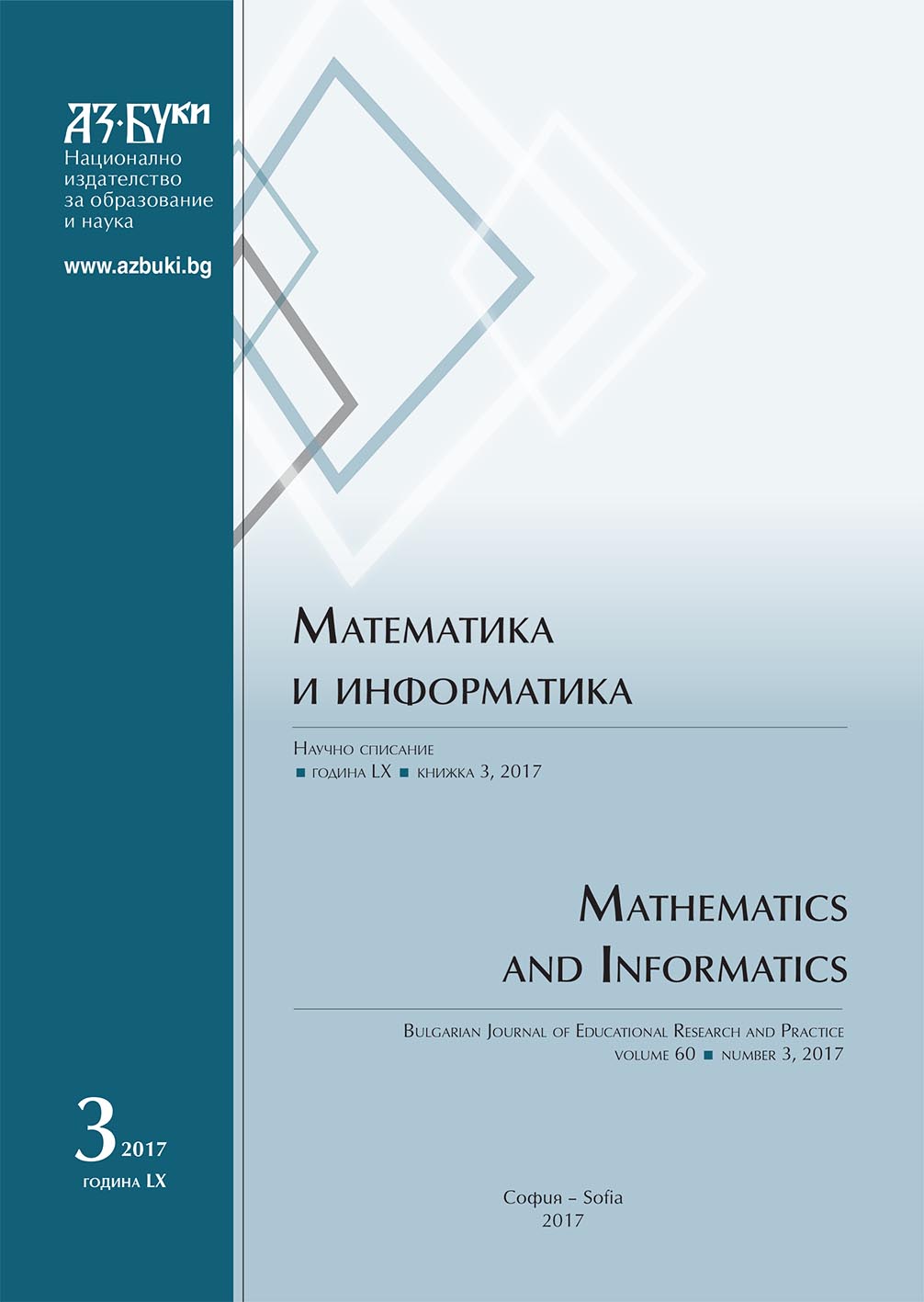
The paper describes the application of a new model to educational software modeling. The mostly used models are analyzed such as block-schemes and the Unified language for modeling. Based on comparison, the semantic model of educational software modeling is described too.
More...
The traditional National mathematical Olympiad for University students took place in Pamporovo resort from 18 to 21 May 2017. The event was hosted by the Plovdiv University “P. Hilendarski”. More than 100 students participated in the Olympiad representing 14 Universities from Bulgaria and 2 Universities from abroad. The competition was organized in 3 groups depending on the mathematical curriculum in different Universities. The paper discusses the problems of the third group, in which students from Economics Universities study Mathematics with small number of classes. Methodological solutions are proposed.
More...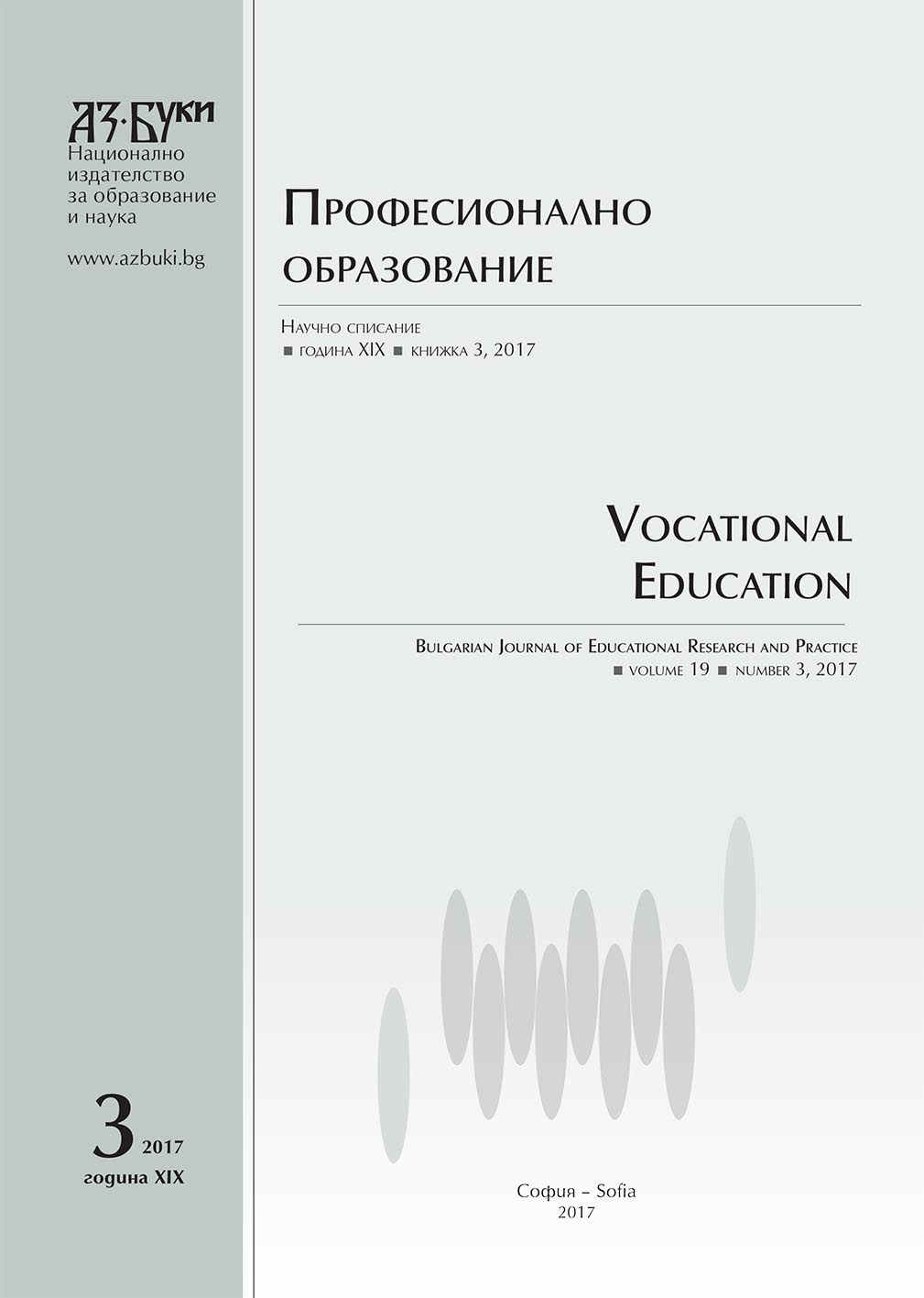
In the text we will discuss the following classifications for protection of communication and computer networks:– classification according to physical range;– classification according to the method of administration; – classification based network operating system; – classification according to network protocol;– classification of the networks according to their topology; – classification according to network architecture.
More...
The article discusses what is a secure information system; what is information protection system and what requirements brought thereto; what are the threats and causes security breach of information technology; What are the functions of protection and how should realize how counteract the threats and how to eliminate the causes of security breaches; how to build a complex system of information protection; how to achieve a high level of security at acceptable cost of funds for the protection of information.
More...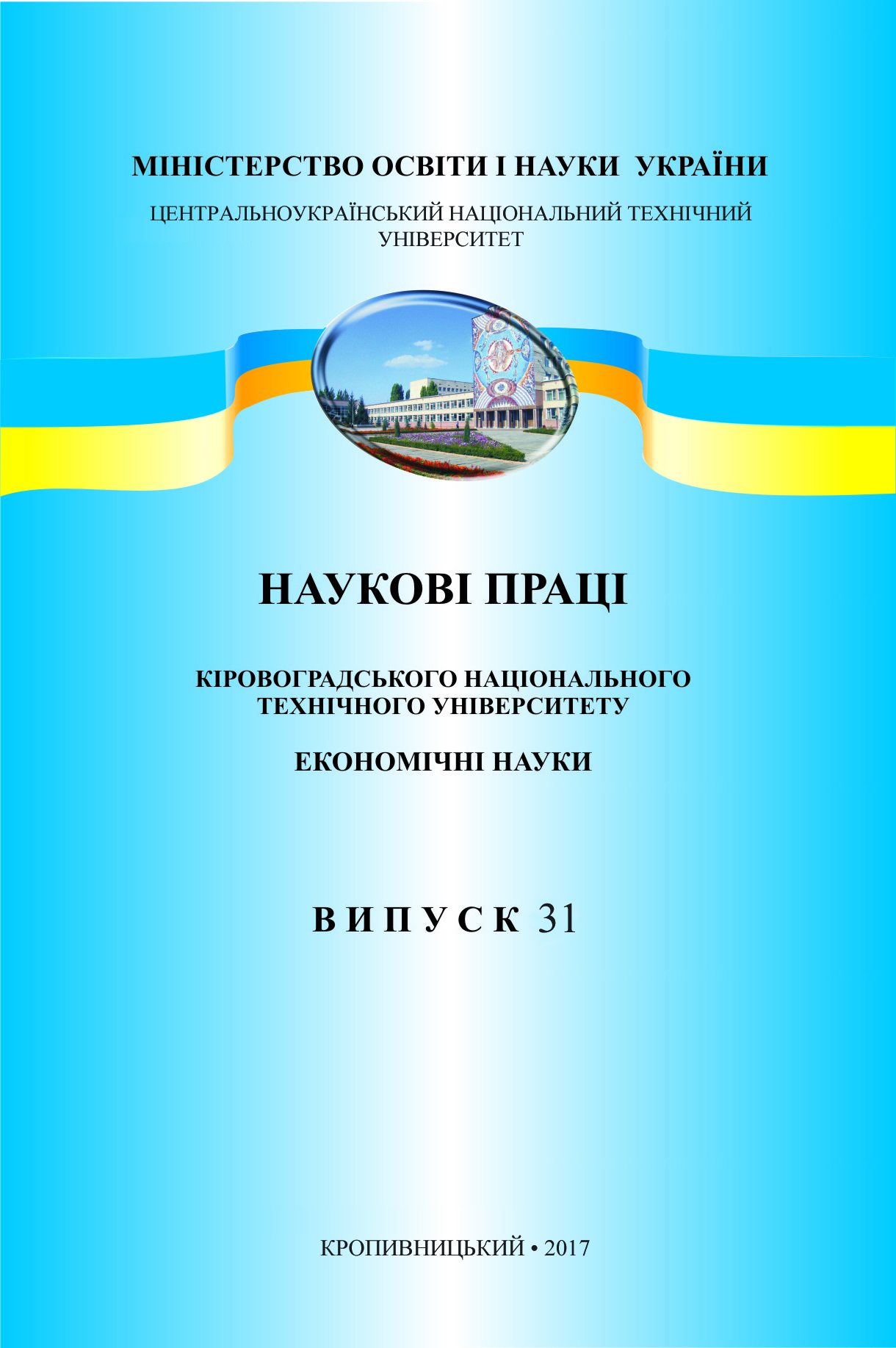
The purpose of the article is to analyze the main aspects of the use of the information system of the port community in Ukraine.The article investigates the use of the information system of the port community in seaports. The normative-legal, institutional support for using the information system of the port community is analyzed. The main directions of problems of practical work with the help of the information system of the port community during the implementation of customs control and customs clearance in Ukraine are given. It was clarified that the private firm monopolized the data processing process in the ports of Ukraine, and the program developed by it does not comply with the current legislation, in particular the Customs Code of Ukraine, and has acquired significant powers in terms of establishing the conditions of access and operation of the information system of the port community.Scientific novelty consists in complex consideration of issues related to the procedure and features of functioning of the information system of the port community in the seaports of Ukraine. The practical significance is to focus on the negative consequences of non-interference of government agencies in a situation that has all the signs of corruption and the need to address the existing problem issues related to the implementation of the "single window" principle, in particular, the DFS of Ukraine. The results of the study can be used by public authorities, in particular, within the framework of the DFS of Ukraine, AMPU, to improve the mechanism of information exchange between actors and state controlling bodies in the seaports of Ukraine.
More...